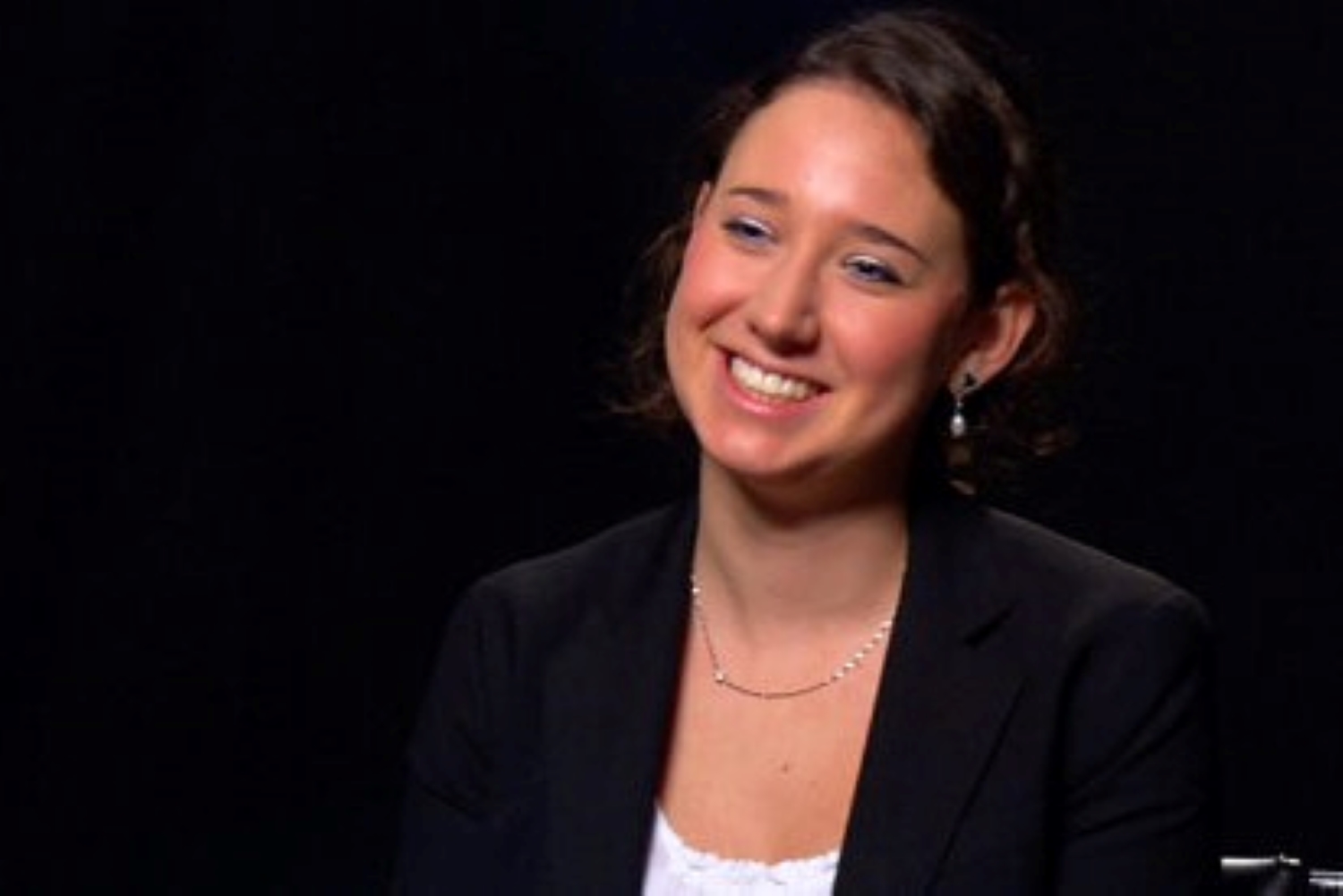The Tables Have Turned – When a Behemoth Got Tricked!
Charlie Javice, the ambitious founder of Frank, garnered recognition for her innovative platform designed to streamline the student loan application experience.
However, the story took an unexpected turn when JPMorgan acquired Frank for a substantial sum, only to later accuse Javice of deceptive practices. Allegations of misleading information and inflated user data unfolded, resulting in a legal battle between Javice and JPMorgan.
In this article, we explore the events that unfolded, shedding light on the complexities of the case and the potential implications for all parties involved.
Charlie Javice – Supervillain Holed up in Hero’s Cape
Charlie Javice rose to fame through her entrepreneurial spirit and dedication to tackling the challenges faced by students navigating the complex student loan system. Her journey as a successful entrepreneur was shaped by a combination of her educational background and early ventures.
Javice’s entrepreneurial drive became evident from a young age when she embarked on her first business venture at the age of 14, selling homemade jewelry to friends and family. This early experience showcased her innate entrepreneurial mindset, keen eye for opportunities, and the importance of creativity, determination, and resourcefulness in the business world.
Her father worked in the hedge fund industry, while her mother pursued a career as a life coach and former teacher. Notably, her brother holds the position of Chief Digital Officer at Popeyes. Javice demonstrated her academic prowess by gaining early admission to the Wharton School at the University of Pennsylvania, where she graduated in just three years with a focus on finance and law.
During her college years in 2011, Javice founded PoverUp, a venture aimed at creating a grassroots student movement and an online platform utilizing microfinance for social impact. Her vision was to empower efforts in combating poverty through the simplicity of a mouse click.
PoverUp actively pursued donations and potential partnerships, reaching out to investors, social incubators, and prestigious educational institutions such as Harvard and Chicago Booth. Internal emails from PoverUp, reviewed by Forbes, revealed claims made by Charlie Javice and PoverUp leaders about her engagements and connections.

They mentioned Javice having dinner in New York with impact investor Bobby Turner, meeting First Round Capital cofounder Josh Kopelman in Philadelphia, and visiting the Harvard Leadership Institute. Notably, no responses were received from the individuals mentioned in the emails when contacted for comment.
Javice also garnered attention through notable features in publications like Fast Company, which recognized her by including her on its Most Creative People list.
According to Howard Finkelstein, the New York lawyer who assisted in establishing PoverUp, the organization was an ambitious concept that Charlie Javice was unable to effectively execute. Finkelstein described Javice as “very ambitious, very brilliant, very influential,” but acknowledged that PoverUp “was a very grandiose idea, and it didn’t really get that far off the ground.”
Also having earned a Bachelor of Arts degree in Political Science from Harvard University, Javice gained valuable knowledge and honed critical thinking skills, which undoubtedly contributed to her understanding of the intricacies of financial aid and the higher education system. This academic foundation provided insights into the policy and systemic issues surrounding student loans, fueling her drive to make a difference.
Following her graduation from Wharton in 2013, Charlie Javice embarked on the development of an educational technology business, which would eventually evolve into Frank. Initially, in 2015, the concept revolved around building a job-search product named Tapd. However, the focus shifted towards creating an alternative to the traditional FICO credit score, a tool utilized by lenders to assess the creditworthiness of potential borrowers and determine loan terms.
What set Javice apart was her profound understanding of the struggles students and families faced in accessing and managing student loans. She recognized the complexities, paperwork, confusing terminology, and lack of transparency that often-burdened individuals seeking financial assistance. Driven by her commitment to making a difference, Javice set out to create a solution that would alleviate these burdens and empower students.
It has been reported that Charlie Javice’s net worth is estimated to exceed $30 million. Her company, Frank, has indeed raised over $25 million in funding, which has likely played a significant role in her overall net worth. The substantial funding received by Frank indicates investor confidence and highlights the potential value and success of the company’s endeavors.
Frank – A Promising Troubleshooter in the First Place
Frank quickly gained recognition for its innovative approach. Javice’s platform offered a user-friendly interface that guided students through the bewildering financial aid application process. By leveraging technology and data-driven algorithms, Frank provided personalized recommendations and optimized outcomes for students in need of financial assistance.
Javice’s passion for helping students navigate the world of student loans captured the attention of investors and the media. Her dedication and entrepreneurial prowess earned her a place on Forbes’ esteemed “30 Under 30” list, solidifying her reputation as a leading figure in the finance industry, particularly in the realm of student loans.
Through her tireless efforts, Javice became a prominent advocate for greater transparency, accessibility, and affordability in higher education. Her work with Frank demonstrated her unwavering commitment to empowering students and making the student loan process more manageable and less daunting.

Javice’s achievements had a ripple effect, inspiring a new generation of entrepreneurs and innovators to address systemic issues within the student loan industry. Her story served as a beacon of hope for students, families, and individuals passionate about leveraging technology and innovation to transform the landscape of education finance.
Frank, the brainchild of Charlie Javice, achieved remarkable success as a platform designed to simplify the student loan application process. With its user-friendly interface and data-driven algorithms, Frank quickly gained recognition and acclaim within the finance industry.
In a significant move in 2021, JPMorgan, one of the world’s leading financial institutions, made a bold decision to recognize the potential of Frank and its innovative approach. Displaying confidence in Frank’s vision and accomplishments, JPMorgan acquired the company for an impressive sum of $175 million.
The acquisition not only demonstrated JPMorgan’s recognition of the value that Frank brought to the table but also signaled their intention to be at the forefront of revolutionizing the student loan industry.
Moreover, Javice’s appointment as a managing director at JPMorgan further solidified her position as a prominent figure in the finance industry. This strategic move by JPMorgan not only showcased their faith in Javice’s leadership abilities but also highlighted their commitment to incorporating fresh perspectives and entrepreneurial expertise into their operations.
The acquisition of Frank by JPMorgan seemed poised to unlock new possibilities and synergies between the two entities. It appeared to be a harmonious union of Javice’s entrepreneurial vision and JPMorgan’s established financial prowess.
However, what seemed like a promising partnership took an unexpected turn. JPMorgan’s enthusiasm waned as they discovered discrepancies and raised suspicions regarding the authenticity of Frank’s reported success. The first red flag emerged when JPMorgan struggled to reach numerous purported Frank users, prompting further scrutiny into the company’s operations.
From Triumph to Turmoil – Frank-JPMorgan Partnership
As doubts grew, Javice’s tenure at JPMorgan abruptly ended in November, leading to a contentious legal battle between her and the financial institution. JPMorgan accused Javice of fraud, alleging that she had provided false information about Frank, including inflated user numbers and manipulated data.
The fallout from the controversy reverberated through the finance and entrepreneurial communities. JPMorgan’s CEO, Jamie Dimon, publicly acknowledged the mistake of acquiring Frank, highlighting the magnitude of the situation. The reputational damage extended beyond Javice personally, casting doubt on the credibility and trustworthiness of the once-promising platform.

Amidst the legal battles, Javice and JPMorgan filed lawsuits against each other, with Javice claiming wrongful termination and seeking attorneys’ fees, while JPMorgan pursued its fraud allegations against her.
According to the lawsuit filed against Charlie Javice and her co-founder Amar, serious allegations of fraudulent practices emerged, suggesting a deliberate attempt to deceive JPMorgan and inflate the value and scale of Frank’s user base.
The lawsuit claimed that during the due diligence process, Javice and Amar provided JPMorgan with inflated and misleading numbers regarding Frank’s customer base. They initially asserted that Frank had a substantial user count of 350,000 students, which already demonstrated significant growth. However, as the investigation progressed, it was discovered that this figure was later revised to a staggering 4.25 million students, a seemingly exponential surge in user numbers.
Even more concerning were the allegations that followed. In response to a request for additional information about the supposed 4.25 million customers, Javice allegedly reached out to a data science professor to create a fictitious student list using synthetic data. According to the lawsuit, this fabricated data was then provided to JPMorgan on August 5, 2021, with the intention of bolstering Frank’s perceived value and influence.
These alleged actions paint a picture of calculated deception and manipulation, with the intention of misleading JPMorgan and inflating the significance of Frank’s platform. If proven true, these practices would not only undermine the trust placed in Javice and Amar but also raise questions about the due diligence procedures employed by JPMorgan during the acquisition.
The Shocking Twist – Alleged Data Fabrication and the High-Stakes Legal Battle
The unfolding drama surrounding Charlie Javice’s legal battle took a shocking twist as the intricate details of her alleged attempt to fabricate data for Frank were revealed. The Justice Department’s criminal complaint painted a picture of intrigue and deception within the halls of Frank’s operations.
According to the complaint, Javice had approached Frank’s director of engineering with a dubious request to generate fake data. However, the director, aware of the potential legal consequences, stood firm: “I don’t want to do anything illegal.”. The clash between Javice’s questionable intentions and the engineer’s unwavering ethics added a layer of tension to the unfolding narrative.
In a surprising turn, Javice attempted to justify her request by asserting that the action was legal. This revelation sent shockwaves through the legal and business communities, sparking heated debates about the ethical boundaries of entrepreneurship and the lengths some individuals may go to inflate their success.
However, the most chilling moment came when Javice was quoted in the criminal complaint, uttering the ominous words, “We don’t want to end up in orange jumpsuits.” This statement, suggestive of her awareness of potential legal repercussions, sent shivers down the spines of those closely following the case, hinting at a deeper understanding of the gravity of her alleged actions.
The courtroom drama intensified when Javice’s attorney, Alex Spiro, raised a compelling point during a court appearance. Spiro challenged JPMorgan’s allegations, asserting that the financial giant had failed to produce any evidence supporting their claim that they relied on Javice’s falsified user data in their decision to acquire Frank. This revelation shook the foundation of JPMorgan’s case and cast doubt on the veracity of the charges against Javice.
The legal ramifications were swift and severe. On April 4, 2023, federal prosecutors in Manhattan charged Javice with a range of offenses, including securities fraud, wire fraud, bank fraud, and conspiracy. The gravity of these charges attracted intense scrutiny from legal authorities and the public, putting Javice’s actions under a microscope.
The U.S. Securities and Exchange Commission (SEC) also joined the fray, filing their own fraud charges against Javice on the same day. This dual legal assault showcased the determination of regulatory bodies to hold Javice accountable for her alleged misconduct.
Released on a two-million-dollar bond, Javice was subjected to strict conditions aimed at ensuring her compliance with the ongoing legal proceedings. Surrendering her passports and facing travel restrictions, she was effectively confined to a limited geographical area, closely monitored to prevent any interference with the case.

The weight of the charges and the restrictions imposed added to the mounting pressure on Javice and the public’s perception of her actions.
Finally, the grand jury indictment, unveiled on May 18, 2023, painted a damning picture of Javice’s alleged offenses. The indictment included four counts, specifically charging her with securities fraud, wire fraud, bank fraud, and conspiracy. This formal indictment underscored the seriousness of the allegations, leaving no doubt about the legal system’s resolve to bring Javice to justice.
As the legal battle raged on, the wider repercussions of the scandal began to reverberate throughout the finance and entrepreneurial communities. The tarnishing of Javice’s reputation cast a shadow over the once-promising Frank platform.
Moreover, JPMorgan’s CEO, Jamie Dimon, publicly acknowledged the mistake of the acquisition, further highlighting the magnitude of the situation and its impact on both parties involved.
The Bottom Lines
In the wake of these events, the unfolding drama surrounding Charlie Javice’s legal battle captivated audiences with its elements of deception, high stakes, and potential for far-reaching consequences.
The outcome of the legal proceedings would determine the fate of Javice, leaving an indelible mark on her legacy and serving as a cautionary tale for entrepreneurs and financial institutions alike.








